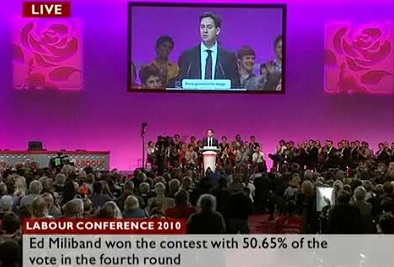Was Ed’s election “free and fair”?

Does it create a problem of legitimacy?
According to PoliticsHome a report by two academics at Bristol University into last year’s Labour leadership election says the contest could not be described as “free and fair democratic”. The trade unions, it says, created a ‘block vote’ to back Ed Miliband.
The authors, Richard Jobson and Mark Wickham-Jones, say that members of Ed’s own campaign admitted that the result created a problem of legitimacy – something that was flagged here at the time by PB’s Henry G. Manson.
A key problem identified is that the process did not meet the definition of a free and fair election because all the candidates did not secure equal access to the electorate. Some unions distributed information to their members only about their preferred candidates.
The report goes on: “It is because of these conditions that we question the normative legitimacy of the process by which Ed Miliband was elected. Legitimacy is clearly a contested and normative concept. A legitimate election, we believe, is one conducted under fair procedures and one in which participants consent to the result on the basis that the contest was handled on an even-handed and non-discriminatory basis, irrespective of the result.
“In other words, we conclude that the 2010 leadership contest does not meet the criteria mapped our in our introduction as to what is a free and fair democratic election.“
This can only add to Ed’s problems as he seeks to assert his authority over the party. The last thing he needs is a reminder during the key conference season of how he got the job.
At the end of the day parties generally are supportive of their leaders at conference time and Ed will get a fine ovation.